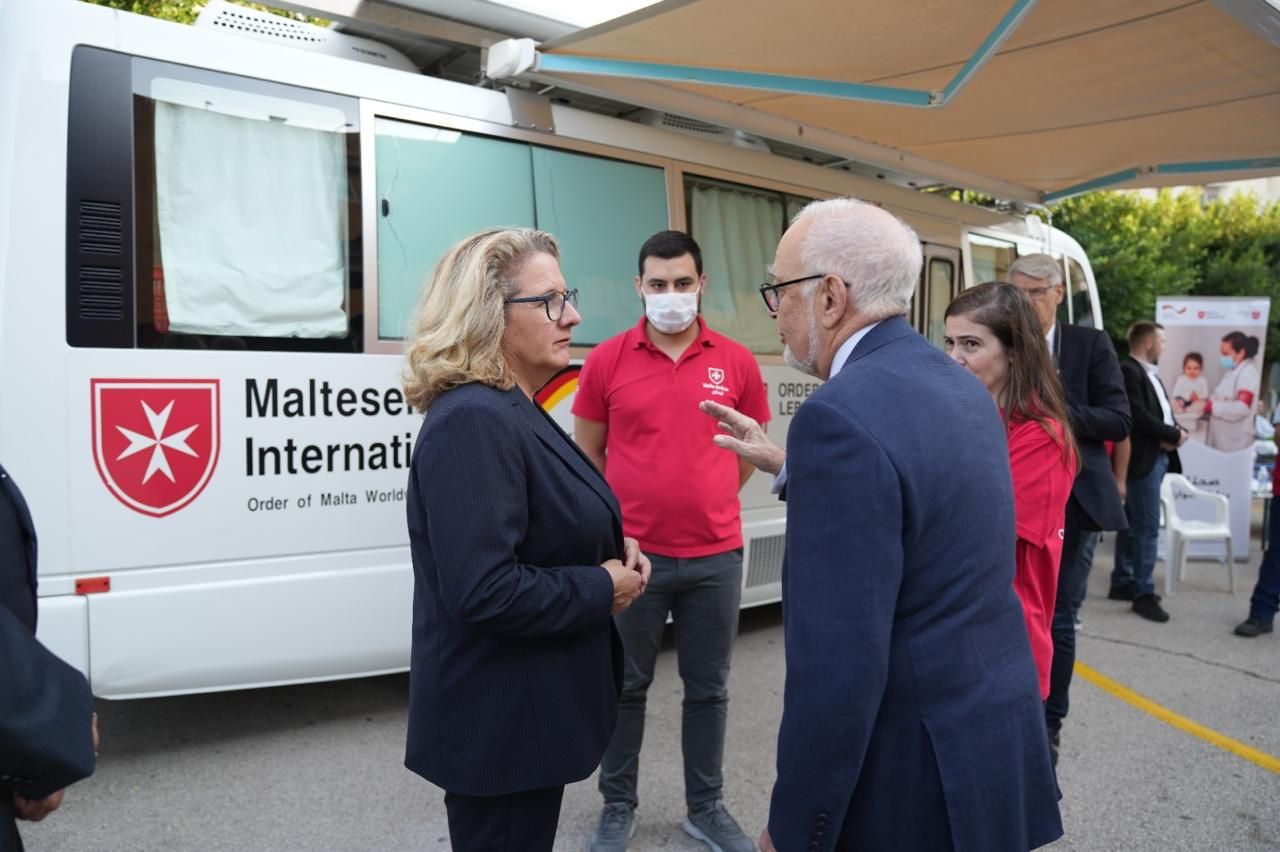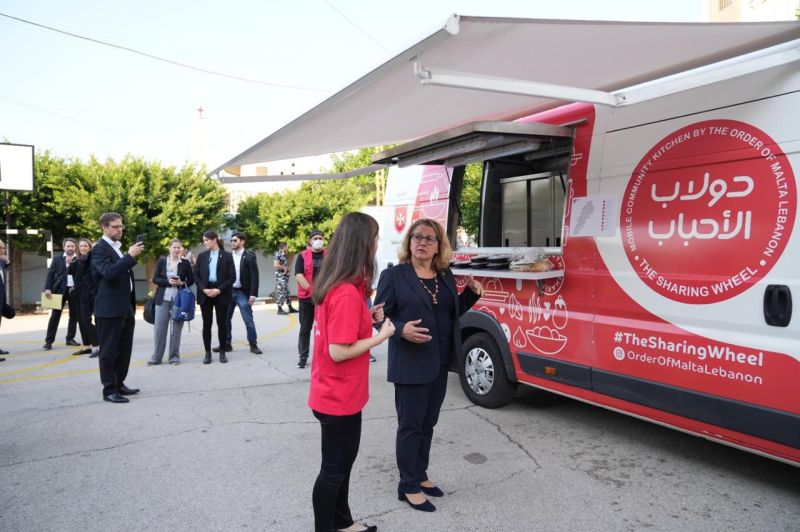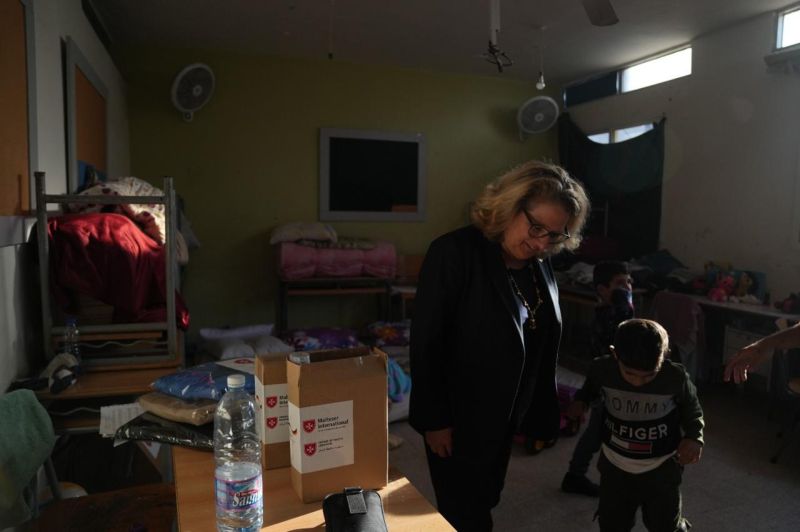
During her brief visit to Lebanon on November 4, German Development Minister Svenja Schulze met with Prime Minister Mikati and visited a community kitchen in Beirut. She then traveled to Zouk Mikael to see a collective shelter in the vicinity of the Order of Malta Lebanon’s Community Health Center, gaining firsthand insight into the local situation and Germany’s aid efforts.
Schulze remarked, “The people in Lebanon are suffering immensely from the military escalation between Hezbollah and Israel. Even before this, Lebanon was heavily burdened, hosting more refugees per capita than any other country. During my visit, I saw the remarkable willingness of the Lebanese people to help refugees and the internally displaced. However, Lebanon cannot handle this crisis alone. Germany is increasing its commitment with international partners to stabilize the country and alleviate immediate suffering by supporting essentials like health, education, food, water, and shelter for those forced from their homes.” She also called for a ceasefire to prevent further displacement.

The conflict has triggered massive displacement within Lebanon, with over 830,000 people now seeking refuge across the country, many relying on assistance and living in temporary shelters, including repurposed schools. The Ministry for Economic Cooperation and Development (BMZ) has long supported Lebanon, which hosts around 1.5 million Syrian refugees alongside 250,000 Palestinians. This ongoing commitment is now being scaled up to address new challenges.
Schulze visited the community kitchen operated by the NGO Souk el Tayeb, with GIZ support, where 3,600 meals are provided daily to internally displaced people across Lebanon. She also visited a school serving as an emergency shelter, where the Order of Malta Lebanon provides food, healthcare, and other essential services. At the shelter, Schulze observed how quickly the public school was transformed to accommodate displaced individuals.

The Order of Malta Lebanon, with the support of Malteser International, provides the shelter’s residents with nutritious meals through its Mobile Community Kitchen, primary healthcare services through its Mobile Medical Unit with a referral system to secondary and tertiary care, mental health services, winterization and hygiene kit distributions, and psychosocial support. Schulze’s visit allowed her to hear personal stories from displaced individuals, deepening her understanding of their experiences and challenges.
Comments